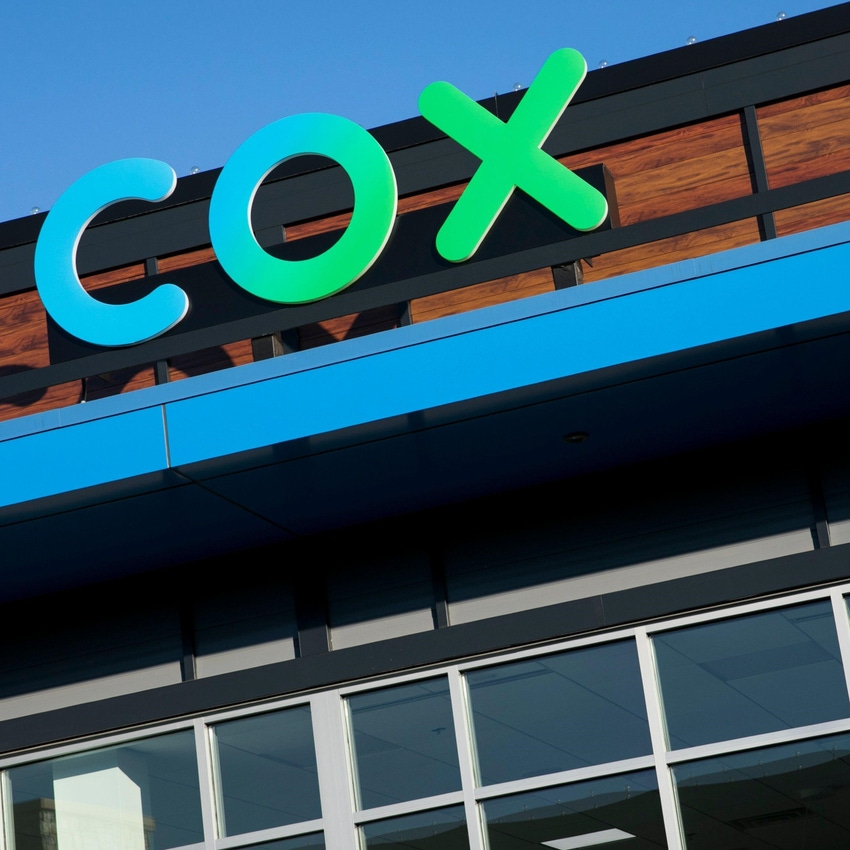An ad watchdog said Cox can still use 'gig speed everywhere' messaging for its Gigablast service, but did recommend Cox disclose that 1-Gig capabilities are limited to downstream speeds.

Another day, another ad spat involving two competing broadband service operators.
An advertising industry watchdog said Cox Communications can continue to use the claim that it delivers "gig speeds everywhere" for its "Gigablast" broadband service following a recent challenge by AT&T.
Cox "provided a reasonable basis" to use that claim while also holding that AT&T cannot provide gigabit speeds to all of its customers, according to a recommendation from the National Advertising Division (NAD) issued today.
Figure 1:  (Source: Kristoffer Tripplaar/Alamy Stock Photo)
(Source: Kristoffer Tripplaar/Alamy Stock Photo)
However, Cox did not come out of the review completely unscathed, as the NAB recommended the following be modified:
The claim that "Cox delivers gig-speeds everywhere" to disclose that gigabit speeds are only available for download speeds. NAD said speed claims, unless qualified, convey a message about download and upload speeds.
Cox's advertising is to avoid conveying the unsupported implied message that AT&T does not offer similar or faster speeds than 5G providers in markets where Cox and AT&T compete. That piece stems from Cox's message that its customers "can always choose Internet that can deliver speeds faster than 5G providers." NAD concluded that the message is not supported because in some markets AT&T provides its fiber service where customers can get 1-Gig speeds.
AT&T's challenge stemmed from Cox TV and radio ads for a Gigablast service that delivers 1 Gbit/s downstream and up to 35 Mbit/s upstream on its hybrid fiber/coax (HFC) network. Those upstream numbers are expected to rise as the operator starts to network split upgrades that dedicate more capacity to the upstream.
NAD said it accepted evidence from Cox that it can provide almost any consumer within its footprint and every customer in the areas where the challenged ads appeared with the operator's 1-Gig service. NAD was also okay with Cox's assertion that less than half of AT&T's customers have access to 1-Gig or faster speeds due to the current availability of the telco's fiber-to-the-premises (FTTP) network.
AT&T's expanding fiber reach
However, AT&T's broadband customer composition is becoming more fiber-focused as the telco builds out its FTTP network.
AT&T ended the third quarter of 2022 with fiber built to 18.5 million locations, a number that's expected to rise to 30 million-plus by the end of 2025. Notably, AT&T's fiber broadband subscriber base surpassed its "non-fiber" broadband subscriber base by the end of Q3 2022. AT&T added 338,000 fiber subs in the period, for a fiber base of 6.93 million compared to 6.86 million non-fiber customers.
Cox was also challenged on an ad claim that it provides "the latest Smart Wi-Fi everywhere," but it wasn't part of the NAD review because Cox had permanently discontinued the claim.
Ad fights mount
Such ad-related spats are becoming more commonplace in the broadband arena as competition between cable operators, telcos and wireless operators gets increasingly heated, and as US cable operators start to struggle for broadband subscriber growth due to that competition being paired with a relatively saturated broadband marketplace.
Among other recent broadband-related ad fights, T-Mobile was told to stop certain claims about how its home Internet service compares to the National FCC Broadband Rate Benchmark – a complaint raised by Charter Communications. Charter and T-Mobile also scrapped over T-Mobile's "no data caps" claim, but the NAB found in T-Mobile's favor. T-Mobile also had a positive outcome in a different ad spat centered on speed and price claims for Comcast's 5G unlimited mobile plans.
Comcast recently introduced TV ads and a website that take aim at the capabilities and features of T-Mobile's 5G-powered home broadband service, holding that they come up short when compared to what's delivered via Comcast's wired broadband services. T-Mobile responded that it's "flattered" by the ad and pointed to research indicating that its home broadband customers are happier than Comcast's. However, T-Mobile did not respond when asked if it has raised or plans to raise a complaint pertaining to the new Comcast campaign focused on T-Mobile's fixed wireless access service.
Related posts:
— Jeff Baumgartner, Senior Editor, Light Reading
About the Author(s)
You May Also Like











